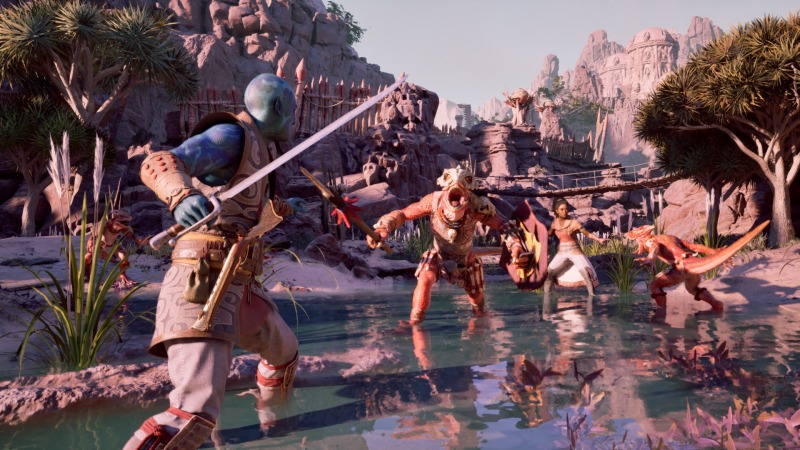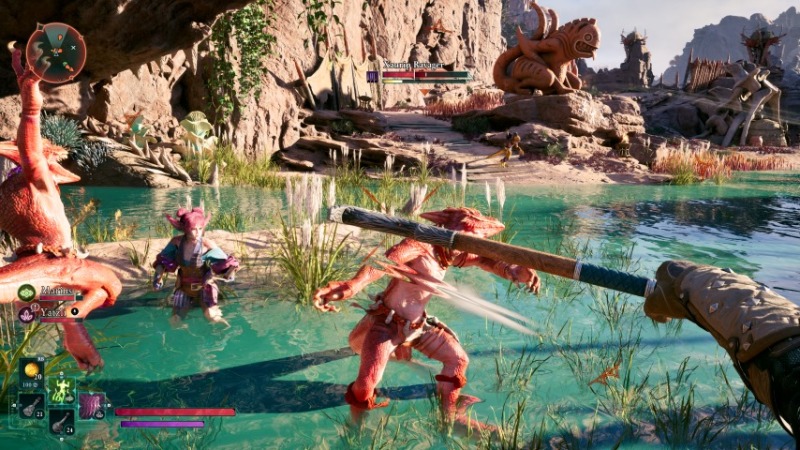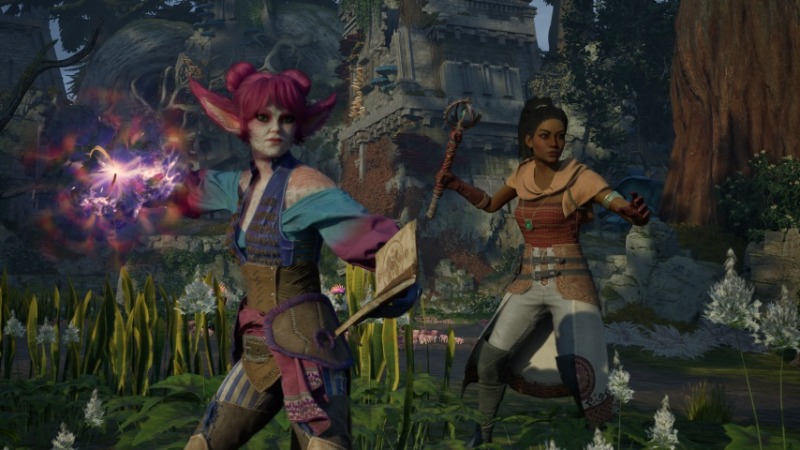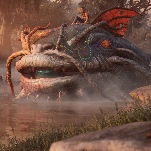Avowed Is Full of Obsidian’s Typical Charm—Eventually

It’s lazy to compare Avowed to Skyrim. It’s not necessarily unjustified, but that comparison rests on a surface-level reading of Obsidian’s latest role-playing game. Yes, Avowed is a first-person open-world fantasy RPG with a strong focus on story, but the decisions it makes when you get past the big picture are so different from Bethesda’s hoary oldtimer that it’s not even worth mentioning that game. Everybody will, though, so let’s just get that out of the way from the start: Avowed is its own distinct beast, and not some Elder Scrolls acolyte.
Obsidian, of course, is known for its RPGs. This is the studio that gave us Knights of the Old Republic II, Fallout: New Vegas, and the idiosyncratic one-off Alpha Protocol. It’s also the studio behind Pillars of Eternity, a crowd-funded isometric RPG from 2015 set in an original fantasy realm of Obsidian’s creation. That game owed a lot to the Baldur’s Gate series and classic Dungeons & Dragons concepts, and Obsidian clearly saw a future for its fictional setting of Eora. A sequel followed, and now, a decade after the original Pillars, Avowed explores a new part of Eora, and from an entirely new perspective.
Avowed reintroduces Eora through a first-person, open-world, story-heavy, action-oriented role-playing game. It’s a direction that should attract many players unaware of Pillars of Eternity, especially with Microsoft, who bought Obisdian in 2018, promoting it. I never played Pillars, so I can’t speak to how well Avowed translates its world into a different style of RPG; I can say that Avowed is a perfectly decent game that gets a much-needed jolt of energy when its personality is allowed to shine several hours in.
For its first several hours, Avowed doesn’t do much to distinguish itself. The game’s first setting—an area named Dawnshore, with a central city called Paradis, within the remote, untamed region of Eora known as The Living Lands—sticks to an overly traditional and familiar brand of fantasy, without the wit and ingenuity Obsidian are known for. The one early flourish is how the game visualizes the Dreamscourge, a mysterious mind-destroying disease that’s cutting through Eora; instead of incurring the grotesque markings of leprosy or the bubonic plague, victims sprout bioluminescent plants from their body. It might not be healthy, but it usually looks pretty cool; it’s a lot like that Alex Garland movie Annihilation, complete with some characters ultimately turning entirely into human-shaped plants. Beyond that most of the game’s earliest section lacks the kind of narrative vision you expect from Obsidian. It’s enough to make you wonder if it’s intentional, like the goal is to be as normal as an Obsidian game can be at first, and then reveal its real personality once players are in too deep to quit.

Avowed comes into its own after that lengthy first act. When you leave the opening area and enter a part of the Living Lands called the Emerald Stair, you immediately meet a deeply sensuous fur-covered wizard named Yatzli. She’s basically Rachel Dratch’s “Love-ahs” character from SNL, but, well, a fur-covered wizard, and although Avowed tries too hard to make Yatzli too much, it’s an instant course correction, and a reminder that this is an Obsidian game and not a stock Elder Scrolls wannabe. The Emerald Stair’s whole deal—it’s a region ruled by a widely banned science/magic called Animancy, whose practitioners experiment on souls separated from bodies, using the empty physical husks that remain for manual labor—lives up to Obsidian’s history of smart, eccentric writing, and quickly rights what had been a listing ship. I don’t want to share too many specifics, but weird, unexpected notes start to pop up throughout Avowed’s side quests and main plotline once you reach the Emerald Stair, and they continue into later acts.
It might take the story a few hours to get interesting, but Avowed’’s approach to character progression is unusual from the beginning. Most notably, I can’t recall another RPG where beating enemies is such an insignificant source of experience points.
Enemies don’t level up alongside your character, and they don’t respawn; they’ll be waiting for you when you’re ready for them, basically, and once they’re dead they’re gone. Completing quests gets you the lion’s share of your experience points; even minor side quests will bring in magnitudes more XP than beating standard enemies. This doesn’t mean combat is optional, or sparse, but it minimizes what is typically an RPG’s main incentive for fighting. There are definitely rewards for clearing out enemy camps—money, items, new weapons, small drips of XP—but by limiting the last of those it underscores that combat is part of Avowed’s kit but not its primary focus. You can’t really grind in Avowed, and there’s no way to farm; the best bet is to stick to the story and fit in as many of the side quests as possible, as they’ll bring in substantially more experience points than randomly getting into fights.
-

-

-

-

-

-

-

-

-

-

-

-

-

-

-

-

-

-

-

-

-

-

-

-

-

-

-

-

-

-

-

-

-

-

-

-

-

-

-

-









































